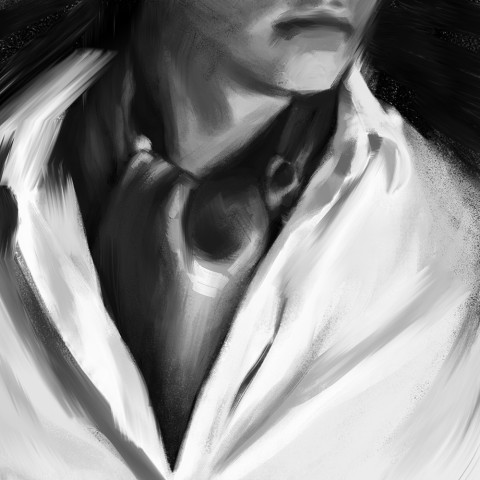I hang my jacket in the closet and then turn on my mother’s answering machine, hoping there’s a message from my Uncle Jack with his flight times. He’s in California now. He and my mother were never close but I’d called him, wanting him to know that his sister was in the hospital, that the situation didn’t look especially hopeful. My mother hadn’t known I’d called, wouldn’t have wanted me to. “Don’t bother Jack,” she would have said. He’d said he’d fly out, but two days have passed since then.
There are two messages, an old one from Kit, who lives next door. “Just checking in, Peg!” she says cheerily, “Call me.” The other is from a man whose name I don’t catch and who seems to be inviting my mother to have dinner with him. I bend my ear closer to the machine and play his message again.
“Any, um, well, any night really. This week. If you’d like, I mean. It was such, um, such a pleasure, really, to see you again, Margaret. To hold you. Truly.” His voice, breathless and pitched with nerves, gives it the quality of a schoolboy’s, though that can’t be right. Except for my son, who is six, my mother doesn’t know any schoolboys. And so it is in this way that I learn that my mother has what appears to be a boyfriend, though unless you are sixteen, it is a silly word. My mother, who recently turned seventy-six, would have found the term deeply embarrassing. Suitor, then? Beau? Paramour? Lover? All slightly unsettling, as is the quaint but revealing to hold you.
I had no idea my mother was even interested in men. When my father died three years ago she said she had, as she put it, closed the book. “Charlie will hold me all my life,” she’d said, also meaning that she’d wished I’d been so lucky. James left when Brian was still a baby. I check the caller ID, hoping for a name, but the call registers only as “Private.”
In the kitchen I find the makings of a sandwich and try to eat it, but it won’t go down. The house creaks with silence. Outside there is a sparkling of sunshine across the flagstone, but it’s chilled here in the house. In her hospital bed, my mother lies hooked to monitors, entwined with lengths of tubing. It was Kit who found her and called the ambulance. A stroke, whose effects would have been ameliorated with prompt treatment, but she’d lain too long on the kitchen floor, a day or more. I throw the uneaten sandwich in the trash, put the plate in the sink.
There’s a tap on the kitchen window. Kit. She must have seen my car in the driveway. I open the slider and she steps in, cheering Kit. I give her the details, such as I know them. She presses a hand to my cheek. I have known Kit all my life. “Honey,” she says.
“What will I do?” I ask, my eyes welling up. Even I know it’s a stupid, whiny question.
“What you have to. What anyone does.” Her expression does not say that this should be obvious, but instead is soft and kind.
The phone rings and in the silence of the house its insistence is piercing. It rings again.
“Jack,” I say to Kit. “It’s Jack. He’s flying in.” I turn and lift the receiver but the voice I hear on the other end is not my uncle’s.
He has loved my mother a long time, this Edward, this schoolboy, this paramour, who weeps when I explain. Also, Margaret, which my mother had never gone by, preferring instead Peg, as in Charlie-and-Peg, co-joined, one word, the way I’d always thought of them. He is a friend of Kit’s, this Edward, who introduced them one New Year’s Eve. My mother, in a paper hat and a little drunk, had evidently kissed him. My mother? For whom Charlie Stanfield was enough? Kissing a man she didn’t even know?
“Margaret,” Edward whispers and I, oddly, feel the intruder. He must be envisioning my mother in the hospital room. His daughters have children. “A joy,” he says of his grandchildren, his wife long dead. I take it by his tone that my mother has already met them, the grandchildren, has seen photos of the lost wife.
With the phone still pressed to my ear, I turn to Kit who leans against the sink, impervious to my “explain, please” look, staring at me expressionless. Edward and I are still connected when I hear the beep indicating an incoming call. The hospital of course has this number. I already sense that it isn’t Jack. “Edward,” I say. “Edward.” Then I take the call.
It’s Kit who takes my jacket from the closet for me, who gets behind the wheel of my car and drives us to the hospital. It’s thick, the afternoon traffic. I’ll have to call the sitter, ask her to keep Brian. Steering, Kit looks over at me. I look at her. “Eyes on the road, please,” I say. “Please.”
We drive across town, Kit and I. Edward is there when we arrive. He stands to greet us. How thin, how tall. He wears a cravat. While I sign the death papers he lays a hand on my shoulder, light, so that it feels more like the shuttering of a wing. Margaret, the document that I sign says. Margaret. The letters, arranged under the hospital’s fluorescent fizz, seem the name of another Margaret who, had I only looked, I might have seen.

Notes from Guest Reader Leland Cheuk
The story is quite moving and about an experience that is universal: the impending loss of a parent. The titular image of the cravat is perfect—comic, sad, and evocative all at the same time.


 The core workshop of SmokeLong Fitness is all in writing, so you can take part from anywhere at anytime. We are excited about creating a supportive, consistent and structured environment for flash writers to work on their craft in a community. We are thrilled and proud to say that our workshop participants have won, placed, or been listed in every major flash competition. Community works.
The core workshop of SmokeLong Fitness is all in writing, so you can take part from anywhere at anytime. We are excited about creating a supportive, consistent and structured environment for flash writers to work on their craft in a community. We are thrilled and proud to say that our workshop participants have won, placed, or been listed in every major flash competition. Community works.